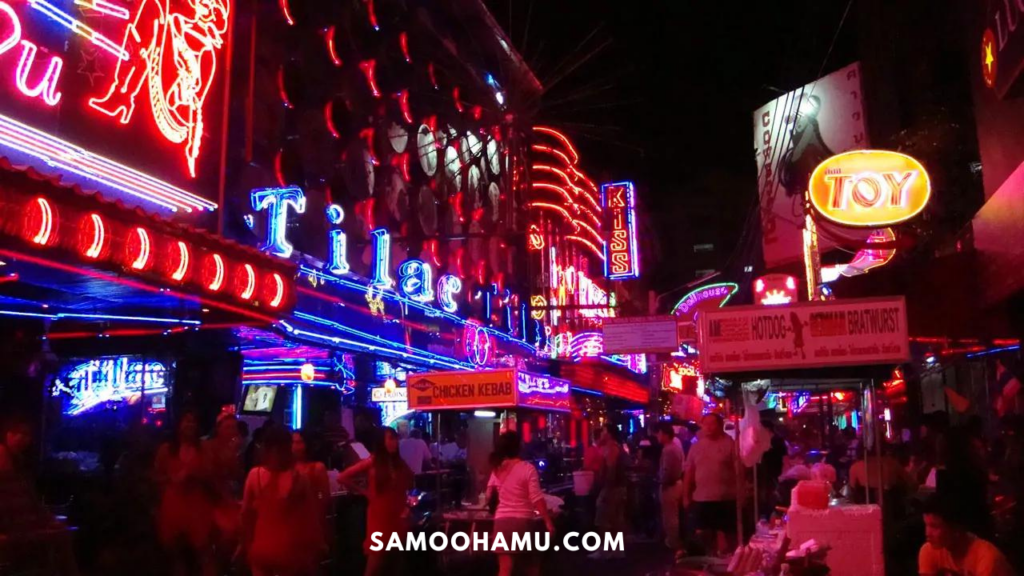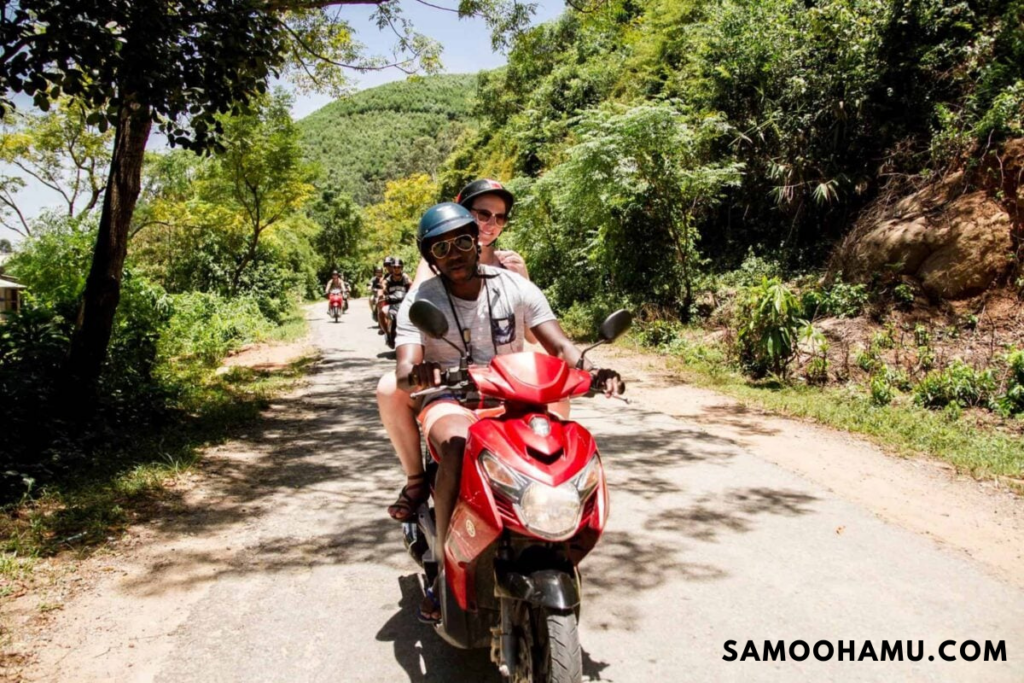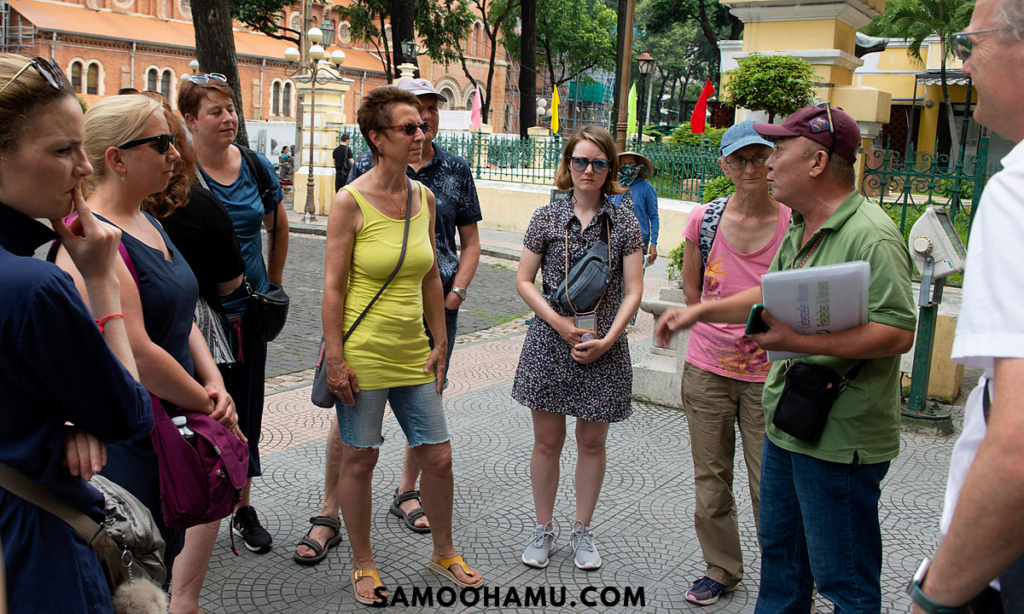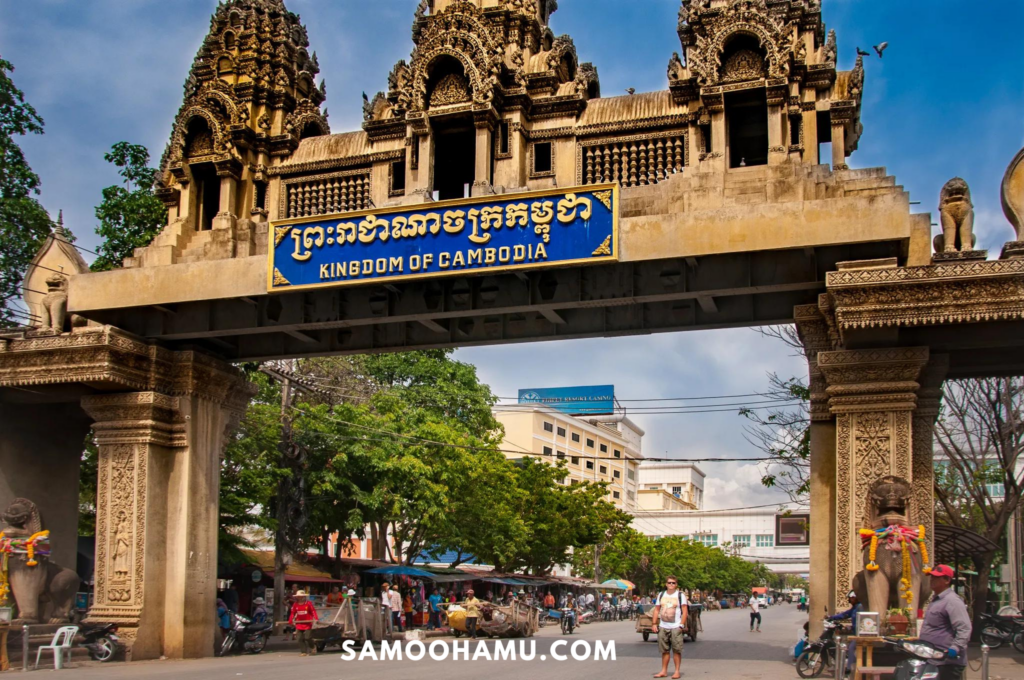Welcome, fellow travelers! As you embark on your adventure through the enchanting lands of Southeast Asia, it’s crucial to arm yourself with knowledge and awareness. While this region is renowned for its stunning landscapes, rich cultural heritage, and warm hospitality, it’s no secret that scammers lurk in the shadows, ready to pounce on unsuspecting tourists.
But fret not! We’ve got your back. In this blog post, we’ll uncover the 13 most common scams in Southeast Asia and equip you with invaluable tips to avoid falling victim to these cunning tricks. So grab a cup of tea (or perhaps a mojito if you’re already sipping one by the beach) and let’s dive into this eye-opening journey together!
1. The Ping-Pong Show Scam

Picture this: You stumble upon a neon-lit alleyway in Bangkok where touts promise an unforgettable night at a ping-pong show. Intrigued? Well, hold onto your hats because what awaits you is far from innocent table tennis antics.
As you enter the dimly lit establishment, the air thickens with anticipation. A friendly host guides you to a seat while promising an experience like no other. But beware! Behind the curtain lies a world of deceit and exploitation.
Once the show begins, it becomes apparent that ping-pong balls are not the main attraction here. Instead, expect explicit acts involving objects that have absolutely nothing to do with sportsmanship or skill.
While onlookers may initially find themselves shocked or amused by these bizarre performances, they soon realize that they’ve fallen into a trap carefully devised for their wallets. As the show reaches its climax (pun intended), exorbitant bills start appearing out of thin air – leaving you feeling both violated and financially drained.
But fear not! By staying informed and following our tips, you can avoid becoming another victim of this notorious scam:
1. Do your research: Before entering any establishment offering ping-pong shows or adult entertainment, read reviews online and ask locals for recommendations to ensure legitimacy.
2. Set clear expectations: Ask specific questions about what type of performance will be showcased before purchasing tickets.
3. Agree on prices upfront: Always negotiate and confirm prices beforehand to avoid surprise charges later.
4. Walk away if pressured: If at any point during negotiations or inside the venue you feel uncomfortable or pressured into spending more than agreed upon, trust your instincts and leave immediately.
Remember, Southeast Asia has so much more to offer than seedy scams disguised as entertainment spectacles! Stay vigilant and keep exploring responsibly – adventure awaits around every corner without compromising your integrity or wallet!
2. Adorable Kids Scam

Picture this: you’re strolling down the bustling streets of Southeast Asia, taking in the vibrant sights and sounds. Suddenly, a group of adorable children approaches you, their innocent eyes pleading for your help. They claim to be orphans or street performers, tugging at your heartstrings.
But beware! This is one of the most common scams in Southeast Asia – the Adorable Kids Scam. These seemingly innocent children are often part of an organized syndicate that preys on unsuspecting tourists.
In reality, these kids are trained to manipulate your emotions and distract you while their accomplices pickpocket or steal from you. It’s a sad reality that some individuals exploit vulnerable children for their own gain.
So how can you protect yourself? First and foremost, maintain situational awareness at all times. Be cautious when approached by groups of children seeking assistance. Instead of giving them money directly, consider donating to reputable local charities that support disadvantaged youth.
Remember, it’s essential not to let your compassion cloud your judgment. Stay vigilant and keep your belongings secure to avoid falling victim to this heart-wrenching scam in beautiful Southeast Asia
3. Bus Traveler Scams

One of the most common scams targeting tourists in Southeast Asia involves bus travel. While buses are a popular and convenient way to get around, it’s important to be aware of the potential scams that can occur.
There is the ticket scam. Beware of individuals selling bus tickets at inflated prices or claiming that certain routes are sold out when they’re not. Always purchase your tickets from authorized sellers or directly from the bus company.
Another scam to watch out for is the “fake” or unofficial bus stops. Some unscrupulous drivers may try to convince you that a particular stop is closed and drop you off at a different location where their accomplices are waiting to take advantage of unsuspecting travelers. Stick with official bus stops and confirm your destination with fellow passengers if in doubt.
Additionally, be cautious of pickpockets on crowded buses. Keep an eye on your belongings at all times and consider using a money belt or keeping valuables secure in a backpack rather than easily accessible pockets.
Avoid accepting help from strangers who claim they can assist with purchasing tickets or finding your way around unfamiliar bus stations. These individuals may have ulterior motives such as diverting you towards overpriced services or stealing your belongings.
By staying vigilant and being aware of these common scams, you can better protect yourself while traveling by bus in Southeast Asia!
4. The Scooter Thief Scam

Picture this: you’re strolling through the bustling streets of Southeast Asia on a sunny day, enjoying the vibrant atmosphere and taking in all the sights and sounds. Suddenly, you spot a shiny scooter parked by the roadside with no one around. Intrigued, you approach it – but little do you know that this innocent-looking vehicle is part of an elaborate scam.
As soon as your hand touches the handlebars, a stranger appears out of thin air claiming to be the owner. They accuse you of trying to steal their scooter and demand compensation for damages. Caught off guard, you may feel pressured to comply or face potential legal consequences.
To avoid falling victim to this scam, remember these essential tips:
1. Always be cautious when interacting with strangers who seem overly aggressive or confrontational.
2. Avoid touching or attempting to use any property without explicit permission from its rightful owner.
3. If someone accuses you of theft or damage without valid proof, remain calm and assertive while seeking assistance from local authorities or nearby witnesses.
By staying vigilant and trusting your instincts, you can steer clear of becoming entangled in The Scooter Thief Scam during your travels across Southeast Asia!
5. The Drug Dealer Scam

The Drug Dealer Scam is one of the most dangerous scams that travelers can encounter in Southeast Asia. It preys on unsuspecting tourists who may be looking for a good time or seeking out new experiences.
In this scam, individuals posing as friendly locals approach tourists and offer to sell them drugs. They may claim to have access to cheap or rare substances, enticing their targets with promises of an unforgettable high.
However, these supposed drug dealers are actually working hand-in-hand with law enforcement officials. The moment money changes hands, the authorities swoop in and arrest both the fake dealer and the unsuspecting tourist.
Not only does this scam result in legal trouble for travelers, but it also puts their safety at risk. Engaging in illegal activities abroad can lead to severe consequences, including imprisonment or deportation.
To avoid falling victim to the Drug Dealer Scam, it’s essential to never buy drugs from strangers while traveling. Always be aware of local laws regarding drug possession and use, as they can vary significantly from country to country.
Remember: your safety should always come first when exploring new destinations! Stay smart and stay away from illicit substances offered by strangers.
6. The Money Exchange Scam

The Money Exchange Scam is a common trick used by scammers in Southeast Asia to take advantage of unsuspecting travelers. Here’s how it works: You arrive at a foreign country and need to exchange your currency for the local one. You find a money exchange booth that offers what seems like an excellent rate with no fees. Excited, you hand over your cash and receive the new currency.
But here’s where the scam comes into play. When you count the money later, you realize that you’ve been shortchanged. The amount given to you is significantly less than what it should be based on the current exchange rate.
How do they do it? Well, these sneaky scammers use distraction techniques to confuse and distract you during the transaction. They may engage in friendly conversation or ask for help with another customer while quickly swapping some of your bills with lower-value ones.
To avoid falling victim to this scam, always be cautious when exchanging money. Research reputable exchange places before your trip and familiarize yourself with current exchange rates so that you have an idea of what to expect. Count your money carefully before leaving the counter, and if anything feels suspicious or off, speak up immediately.
Remember, being aware and alert can save you from becoming another victim of this deceitful Money Exchange Scam! Stay sharp out there!
7. The Cheap Restaurant Scam

One thing you’ll notice when traveling in Southeast Asia is the abundance of restaurants offering cheap and delicious local cuisine. However, not all cheap restaurants are what they seem, and falling for the “Cheap Restaurant Scam” can leave a bad taste in your mouth.
Here’s how it works: You stumble upon a restaurant with enticingly low prices on their menu. Excited to save some money while indulging in tasty food, you decide to give it a try. But once you receive your bill at the end of the meal, you realize that many hidden charges have been added without your knowledge or consent.
These additional charges could include inflated prices for items like rice or water, service charges that were never mentioned upfront, or even made-up fees for things like utensils or napkins. By the time you’re done paying, you realize that your supposedly budget-friendly meal has turned into an expensive affair.
To avoid falling victim to this scam, always ask about any additional charges before placing your order. Take note of any discrepancies between the advertised prices and what appears on the menu. If something seems fishy (pun intended), don’t hesitate to walk away and find another eatery where transparency is valued.
Remember that not all inexpensive restaurants are scams; there are plenty of legitimate places where you can enjoy affordable and authentic local cuisine without any surprises at checkout. Just be cautious and stay alert to protect yourself from getting caught up in this common scam during your Southeast Asian adventures!
8. Tourist Information Offices Scam

Planning your trip to Southeast Asia? It’s essential to gather all the important information about the places you’ll be visiting. While tourist information offices seem like a reliable source, beware of this common scam that can catch even the most experienced travelers off guard.
Here’s how it works: you walk into a seemingly legitimate tourist information office seeking assistance with your itinerary or accommodation. The staff appears friendly and helpful, offering you brochures and maps. They might even suggest booking tours or accommodations through them for convenience.
However, what they don’t tell you is that they receive hefty commissions from these bookings. You end up paying inflated prices while thinking you’re getting a good deal. Additionally, some unscrupulous offices may recommend unreliable tour operators who offer subpar services or cancel at the last minute.
To avoid falling victim to this scam, do your research beforehand. Check online reviews for recommended tour operators and accommodations rather than solely relying on tourist information offices. Don’t hesitate to ask fellow travelers or locals for their recommendations as well.
Remember, knowledge is power when it comes to avoiding scams during your travels in Southeast Asia! Stay alert and trust your instincts before making any decisions based on advice from tourist information offices
9. The Closed Monument Scam

Have you ever heard of the closed monument scam? Well, let me tell you about it. Picture this: you’re strolling through a bustling city in Southeast Asia, excited to visit a famous historical monument that’s on your must-see list. As luck would have it, when you arrive at the site, there’s a sign saying it’s closed for renovation or some other reason. Disappointed but determined not to miss out, you start searching for an alternative way to get inside.
That’s when a friendly local approaches and offers to take you to another entrance or even give you a private tour. They seem genuine and eager to help, so without thinking twice, you agree. But here’s the catch – they’ll demand an exorbitant fee for their services once they’ve lured you away from the real entrance.
It may sound like something straight out of a movie plot, but sadly this scam is all too real in certain parts of Southeast Asia. The scammers prey on tourists’ eagerness to experience cultural landmarks and exploit their lack of knowledge about alternative entrances or opening times.
To avoid falling victim to this scam, always do your research before visiting any popular monuments or tourist attractions. Check official websites or ask trusted locals for reliable information regarding opening hours and any ongoing renovations. If someone approaches offering assistance outside a supposedly closed monument, politely decline and seek guidance from official staff members instead.
Remember, staying vigilant can go a long way in ensuring your travel experiences are memorable for all the right reasons!
10. The Tour Guide Scam

Picture this: you’re strolling through the vibrant streets of Southeast Asia, taking in all the sights and sounds. Suddenly, a friendly local approaches you with an offer to be your personal tour guide for the day. How convenient, right? Wrong! Unfortunately, this could be part of a cunning scam that unsuspecting travelers often fall victim to.
The Tour Guide Scam is deceptively simple yet effective. The scammer poses as a knowledgeable local who offers their services as a tour guide at a seemingly reasonable price. Eager to explore the city and learn about its rich culture, many tourists readily accept this offer without realizing they are walking straight into a trap.
Once you agree to hire them, these fraudulent guides will lead you around for hours on end, providing inaccurate or misleading information about popular attractions and historical sites. They may even take detours to shops or restaurants where they receive kickbacks for bringing in unsuspecting customers.
To avoid falling prey to The Tour Guide Scam, it’s crucial to do your research before arriving at your destination. Read reviews online and ask fellow travelers for recommendations on reputable tour guides or agencies. Additionally, consider booking tours through trusted companies that have been vetted by other visitors.
Remember, while there are undoubtedly genuine locals who are passionate about sharing their knowledge with tourists, it’s essential to exercise caution when dealing with strangers offering their services as tour guides. Stay vigilant and protect yourself from becoming another victim of The Tour Guide Scam!
11. The Special Massage Scam

The Special Massage Scam is one of the most common scams targeting unsuspecting travelers in Southeast Asia. It usually starts with a friendly local approaching you on the street, offering you a special massage at an unbelievably low price. Intrigued by the offer, many tourists fall into this trap without realizing what they’re getting themselves into.
Once inside the massage parlor, things take a turn for the worse. The masseuse will start off innocently enough, but soon they’ll begin to suggest additional services that come at a much higher cost. This is where the scam lies – they lure you in with a cheap massage and then pressure you into paying exorbitant amounts for extras that were never mentioned before.
To avoid falling victim to this scam, it’s important to do your research beforehand and only visit reputable establishments recommended by trusted sources. Be cautious of anyone approaching you on the street with offers that seem too good to be true.
Remember, if something feels off or uncomfortable during your massage experience, trust your instincts and leave immediately. Don’t let yourself become another victim of the Special Massage Scam! Stay vigilant and enjoy your travels without any unwanted surprises along the way.
12. The Border Scam

The Border Scam is a sneaky trick that scammers use to take advantage of unsuspecting travelers crossing borders in Southeast Asia. Here’s how it works: as you approach the border checkpoint, a friendly stranger strikes up a conversation with you. They may offer to help you navigate the confusing process or even act as your guide.
But beware! These seemingly helpful individuals are actually part of an elaborate scam. They will lead you away from the official immigration counters and into a nearby building or alleyway. Once there, they will demand payment for their “assistance” – often at an exorbitant price.
To avoid falling victim to this scam, it’s important to stay alert and follow official procedures when crossing borders. Always go directly to the designated immigration counters and never allow strangers to guide you elsewhere.
If someone approaches you offering assistance, politely decline and continue on your own. Trust in the legitimate authorities and don’t let yourself be swayed by smooth-talking scammers looking to make a quick buck.
Remember, being cautious is key when traveling through unfamiliar territories. Stay vigilant and protect yourself from falling prey to scams like The Border Scam!
13. The Tea Party Scam

So there you have it, the 13 most common scams in Southeast Asia and how to avoid them. We’ve covered everything from ping-pong shows to adorable kids, bus traveler scams to scooter thieves. But let’s not forget about one last scam that can leave you with a bitter taste in your mouth – the tea party scam.
Picture this: You’re strolling through a bustling street market, when suddenly a friendly local approaches you with an inviting smile. They offer you the chance to experience an authentic tea ceremony or join them for a traditional tea party. It sounds like a delightful cultural experience, right? Well, think again!
In this scam, unsuspecting tourists are lured into these seemingly innocent gatherings only to be hit with exorbitant bills at the end. The scammers will often use distraction techniques or switch out more expensive teas without your knowledge. By the time you realize what’s happening, it’s too late – your wallet has been significantly lightened.
To protect yourself from falling victim to this deceitful scam, remember these tips:
1. Be cautious of overly friendly strangers offering invitations.
2. Research reputable tea houses or cultural centers beforehand.
3. Set clear expectations and inquire about any potential costs before participating.
4. Keep track of what you consume and ask for itemized receipts if possible.
5. Trust your instincts – if something feels off or too good to be true, it probably is.
By staying vigilant and aware of these common scams in Southeast Asia, you’ll be better equipped to navigate unfamiliar territories without falling into their traps.
Remember that while encountering scams can feel disheartening and frustrating during your travels, they shouldn’t overshadow all the incredible experiences waiting for you in Southeast Asia. Embrace the rich cultures, stunning landscapes, and warm hospitality that make this region so special.
Travel smartly but don’t let fear dictate your adventures! With proper precautions and awareness on your side,
your journey through Southeast Asia is bound to be an unforgettable one.




